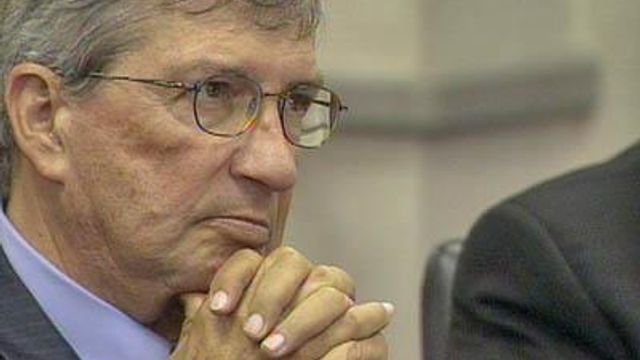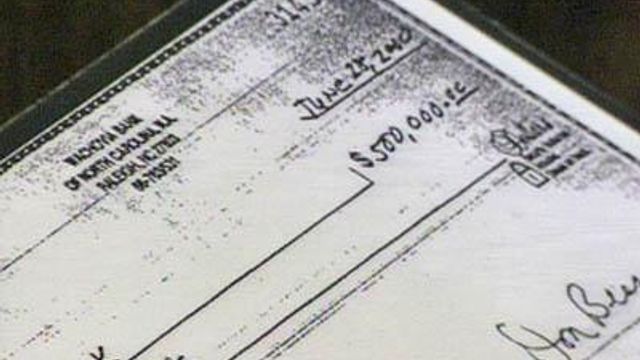Jim Black Scandal Prompts Ethics Concerns
Lobbyists and political activists worried about the ethical dilemmas created by the scandals surrounding the former House speaker.
Posted — UpdatedIn sentencing Black, Superior Court Judge Donald Stephens pointed to issue that political activist said worry them: power, influence and money.
"I think the federal government has taken care of taking away the power and taking away the influence," said Stephens. "So the purpose of my sentencing is to take away the money."
In testimony, Black publicly identified Don Beason as the lobbyist who gave him $500,000 in what Black called a personal loan for a business investment.
Black said the money was mistakenly deposited in his campaign account and that he paid it back.
Political activists said they are concerned precisely by such transactions as occurred between Black and Beason.
"It shows the power, the relationships, the dependence that legislators have on the men and women who lobby here (the General Assembly)," said Chris Fitzsimon, with the public-policy group N.C. Policy Watch.
Other lobbyists distanced themselves from the actions of Black and Beason.
"We as lobbyist are insulted by this kind of action," said Bob Hall, executive director of Democracy North Carolina, a group that does lobbying work for nonprofits.
Beason is regularly ranked among the state's most powerful lobbyists, representing clients including BB&T, BellSouth, the North Carolina Restaurant Association and the video poker industry.
Former political consultant Joe Sinsheimer said he expects the testimony given Tuesday will concern businesses that employ lobbyists to influence state legislation.
"It's going to put some pressure on these publicly traded corporations that hired Don Beason, companies like BB&T, about whether or not they want to employ someone that's clearly willing to bend, if not break, the law," said Sinsheimer.
Beason released a statement admitting that he made a loan to Black in 2000. He testified about the loan to a federal grand jury in Wake County in spring 2007, according to the statement.
"I recognize that making the loan was a serious error in judgment, and I deeply regret it," Beason said in the statement.
He said he is "truly sorry" to his clients, lobbyists, legislators and North Carolina citizens in the statement.
Fitzsimon said that the scandal should prompt more ethics reform in the state Legislature.
"I think it shows why we needed lobbying and ethics reform last year, and why there are still so many things that we need to fix," said Fitzsimon.
On Tuesday, lawmakers tweaked laws passed last year and opened up hearings of the Legislative Ethics Committee and the State Ethics Commission.
Some lobbyists said the Black scandal revealed flaws in the field.
"This shows the lobbying profession has some work to do to clean house," Hall said.
• Credits
Copyright 2024 by Capitol Broadcasting Company. All rights reserved. This material may not be published, broadcast, rewritten or redistributed.






